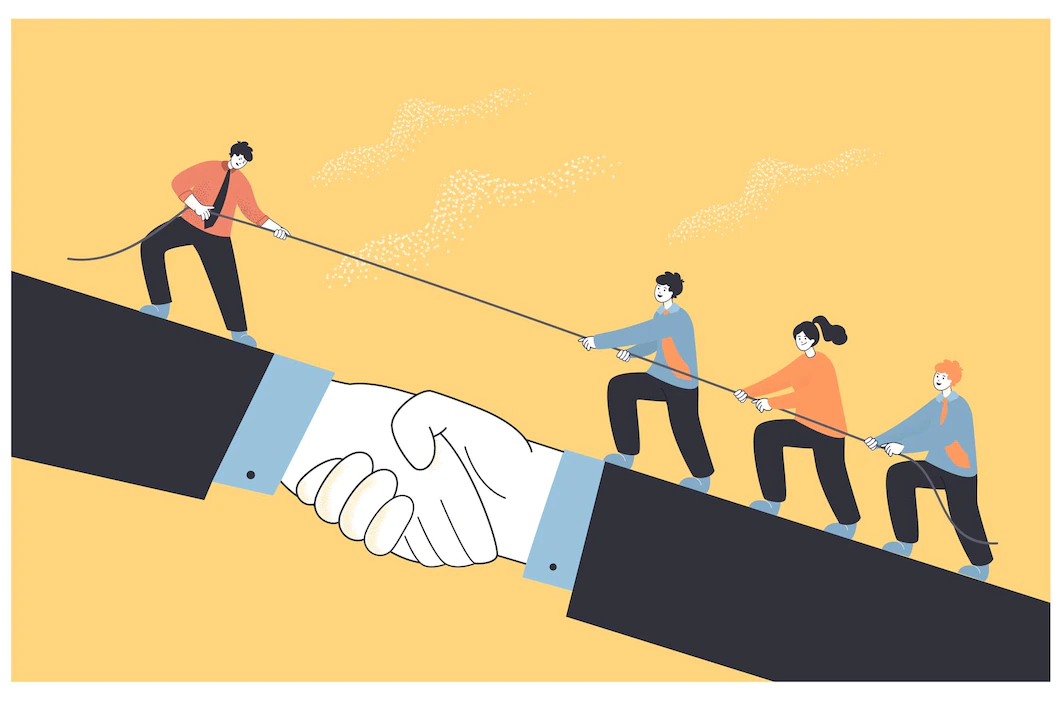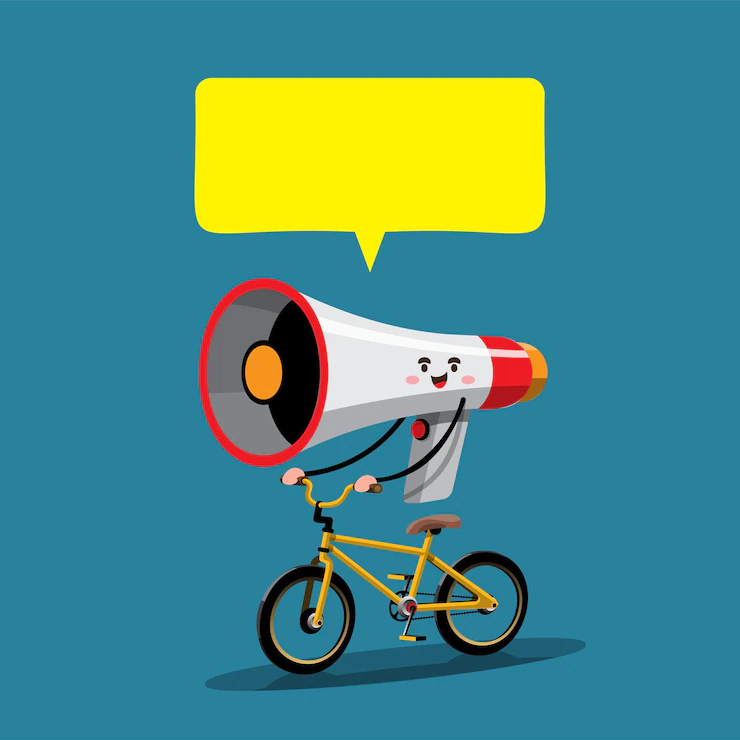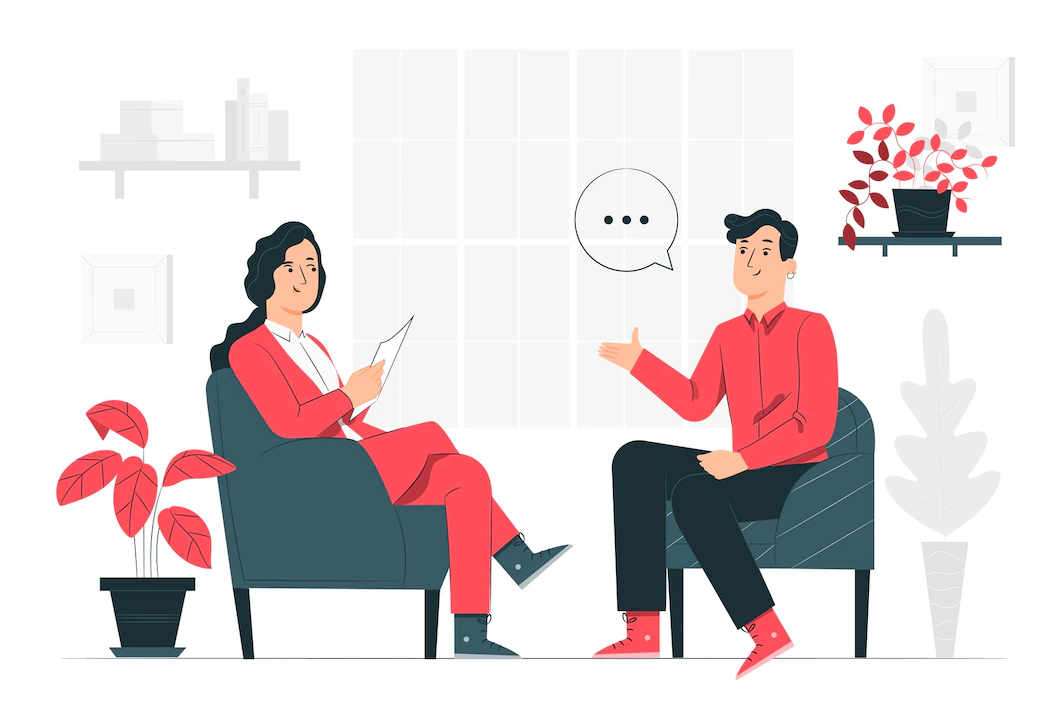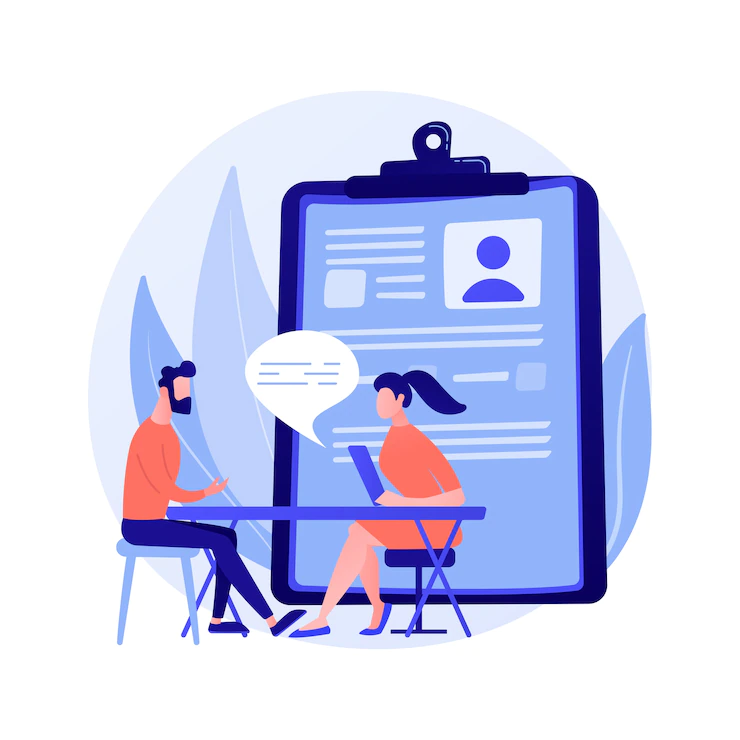Top Tips To Pass A Job Interview
Manifest the role by remaining positive
 Image Source/ Glamour UKWell all know that these days life is about manifesting, and being able to remain positive about the role might actually help you achieve it. If you're feeling pessimistic about the interview, this is going to show through nervousness and self-doubt.
Image Source/ Glamour UKWell all know that these days life is about manifesting, and being able to remain positive about the role might actually help you achieve it. If you're feeling pessimistic about the interview, this is going to show through nervousness and self-doubt.Advertisement
Make sure you know the position as well as possible
 Image Source/ The Big InterviewYou know to research inside out everything about the position you're applying for. This includes what the job entails, the duties, who you're responsible for. Don't just research the role at that company, look at it across other companies and see how it differs.
Image Source/ The Big InterviewYou know to research inside out everything about the position you're applying for. This includes what the job entails, the duties, who you're responsible for. Don't just research the role at that company, look at it across other companies and see how it differs.Advertisement
Clear up that social media
 Image Source/ Freepik / Vector JuiceSome people don't believe that recruiters will look up your social media, but they're just being naïve. Recruiters will definitely have a quick Facebook search of you, so be sure to hide them photos of you blackout drunk, half-naked on your Spanish holiday!
Image Source/ Freepik / Vector JuiceSome people don't believe that recruiters will look up your social media, but they're just being naïve. Recruiters will definitely have a quick Facebook search of you, so be sure to hide them photos of you blackout drunk, half-naked on your Spanish holiday!Advertisement
Practice makes perfect
 Image Source/ Freepik / MacrovectorYou should always practice your interviews before going into them, so see if you can grab a friend to help you out with this one. It will make you feel more at ease on the day and give you time to properly rehearse your answers before your interview.
Image Source/ Freepik / MacrovectorYou should always practice your interviews before going into them, so see if you can grab a friend to help you out with this one. It will make you feel more at ease on the day and give you time to properly rehearse your answers before your interview.Advertisement
Dress for the occasion
 Image Source/ Freepik / jcompYou know what they say, dress for the job you want, not the job you have, and this can be true in any case. But at the very least you should dress to impress, which means making sure that your clothes are smart and professional so they can see that you're serious about wanting this job.
Image Source/ Freepik / jcompYou know what they say, dress for the job you want, not the job you have, and this can be true in any case. But at the very least you should dress to impress, which means making sure that your clothes are smart and professional so they can see that you're serious about wanting this job.Advertisement
Be prepared and take whatever you need
 Image Source/ Freepik / pchvectorMake sure you're prepared and bring everything they've asked you for. This includes things like your driver's license, proof of address, previous qualifications, references etc. Also, don't forget to bring a notepad too, recruiters will love to see you writing notes!
Image Source/ Freepik / pchvectorMake sure you're prepared and bring everything they've asked you for. This includes things like your driver's license, proof of address, previous qualifications, references etc. Also, don't forget to bring a notepad too, recruiters will love to see you writing notes!Advertisement
Make sure it's a firm handshake
 Image Source/ Freepik / pchvectorWhile it might seem an archaic and pointless thing to do, giving a firm handshake doesn't not work in your favour, and will establish a bond between yourself and the interviewer, and may even make you seem more confident. So don't be afraid to go in there with the hand first!
Image Source/ Freepik / pchvectorWhile it might seem an archaic and pointless thing to do, giving a firm handshake doesn't not work in your favour, and will establish a bond between yourself and the interviewer, and may even make you seem more confident. So don't be afraid to go in there with the hand first!Advertisement
Confidence is key; believe in yourself
 Image Source/ Freepik / jcompFake it till you make it, am I right? Well, it's true! If you're not feeling confident about your chances at this interview, it's going to show. So maybe you should look at yourself in the mirror and convince yourself that you are confident and that this job is yours!
Image Source/ Freepik / jcompFake it till you make it, am I right? Well, it's true! If you're not feeling confident about your chances at this interview, it's going to show. So maybe you should look at yourself in the mirror and convince yourself that you are confident and that this job is yours!Advertisement
Always be early
 Image Source/ Freepik / pchvectorIf you know that the buses around you run on their own time, maybe get a taxi if you can afford it, or set off super early. You need to make sure that you're not late (at the least) and 10 minutes early (at the best). That way, you're setting a great first impression to the bosses.
Image Source/ Freepik / pchvectorIf you know that the buses around you run on their own time, maybe get a taxi if you can afford it, or set off super early. You need to make sure that you're not late (at the least) and 10 minutes early (at the best). That way, you're setting a great first impression to the bosses.Advertisement
Do your research on the company...
 Image Source/ Freepik / vectorjuiceResearch is key in preparation of an interview, and that means researching the company. This can include the company culture which is always good to know before heading to an interview. Is it slightly chilled and more laidback, or are they very vigilant and up-market?
Image Source/ Freepik / vectorjuiceResearch is key in preparation of an interview, and that means researching the company. This can include the company culture which is always good to know before heading to an interview. Is it slightly chilled and more laidback, or are they very vigilant and up-market?Advertisement
And make sure you have the data!
 Image Source/ Freepik / jcompWhile researching the company you should make notes of their data too. This can include things like number of employees or stores, how long it has been established for, what their turnovers look like, it's very useful to head in there with this kind of information.
Image Source/ Freepik / jcompWhile researching the company you should make notes of their data too. This can include things like number of employees or stores, how long it has been established for, what their turnovers look like, it's very useful to head in there with this kind of information.Advertisement
Don't forget to research their interviews too!
 Image Source/ Freepik / vch.vectorSometimes, you can see where people have left reviews for interviews they have been to, like on websites such as Glassdoor. It can be very beneficial for you as there are many different ways that interviews can be conducted, and will set you up for the day.
Image Source/ Freepik / vch.vectorSometimes, you can see where people have left reviews for interviews they have been to, like on websites such as Glassdoor. It can be very beneficial for you as there are many different ways that interviews can be conducted, and will set you up for the day.Advertisement
Do some research on your interviewers
 Image Source/ Freepik / vch.vectorYou need to make sure you know the people who are interviewing you, including their names, job titles, current projects (if this information is accessible). It will make you look great going in there with this foundation of knowledge, and will allow you to ask questions too.
Image Source/ Freepik / vch.vectorYou need to make sure you know the people who are interviewing you, including their names, job titles, current projects (if this information is accessible). It will make you look great going in there with this foundation of knowledge, and will allow you to ask questions too.Advertisement
Reach out to previous employees/interviewees
 Image Source/ freepik / upklyakIf you can see some reviews left for the company, why not reach out to some of the previous interviewees/employees for feedback? Even still, you could consider connecting with current employees who can help you with the interview process. Every little helps, right?
Image Source/ freepik / upklyakIf you can see some reviews left for the company, why not reach out to some of the previous interviewees/employees for feedback? Even still, you could consider connecting with current employees who can help you with the interview process. Every little helps, right?Advertisement
Connections are key
 Image Source/ Freepik pch.vectorConnections are key, so if you think you might know someone who works at the company, get them to put in a good word for you if you can... it may take you a long way, you never know. Recruiters want to hire people they know will be trustworthy and reliable so will rely on the advice of their colleagues.
Image Source/ Freepik pch.vectorConnections are key, so if you think you might know someone who works at the company, get them to put in a good word for you if you can... it may take you a long way, you never know. Recruiters want to hire people they know will be trustworthy and reliable so will rely on the advice of their colleagues.Advertisement
Check out how many people are being interviewed
 Image Source/ Freepik / pch.vectorSometimes, this information isn't always that accessible, but a website might tell you how many people have applied for the role. Also, if you've got through to another stage, you might even be able to ask the recruiters how many are being interviewed for the position.
Image Source/ Freepik / pch.vectorSometimes, this information isn't always that accessible, but a website might tell you how many people have applied for the role. Also, if you've got through to another stage, you might even be able to ask the recruiters how many are being interviewed for the position.Advertisement
Always be truthful
 Image Source/ Freepik / jcompHonesty is the best policy. While it's find to do a bit of embellishing on your CV and in interviews, you should never outright lie as it can come to bite you later on down the line. Just be honest about what you can provide the company and everything will be fine.
Image Source/ Freepik / jcompHonesty is the best policy. While it's find to do a bit of embellishing on your CV and in interviews, you should never outright lie as it can come to bite you later on down the line. Just be honest about what you can provide the company and everything will be fine.Advertisement
Make sure you are enthusiastic
 Image Source/ Freepik/ pch.vectorRecruiters love enthusiasm, so come in and be passionate about the company, the role and the industry too. They will be able to see that passion come through in your answers, your body language and facial expression and will know that you're dedicated to the field.
Image Source/ Freepik/ pch.vectorRecruiters love enthusiasm, so come in and be passionate about the company, the role and the industry too. They will be able to see that passion come through in your answers, your body language and facial expression and will know that you're dedicated to the field.Advertisement
Have a think before you speak
 Image Source/ Freepik / studiogstockTake a few seconds before each of your answers to reflect on what you're about to say. After all, you don't want to end up on a tangent or say something you'd rather not say. Always make sure you know what you're about to say otherwise you might just end up saying the wrong thing!
Image Source/ Freepik / studiogstockTake a few seconds before each of your answers to reflect on what you're about to say. After all, you don't want to end up on a tangent or say something you'd rather not say. Always make sure you know what you're about to say otherwise you might just end up saying the wrong thing!Advertisement
And make sure you're not speaking too fast!
 Image Source/ Freepik / jcompLikewise to the above, you also don't want to speak so quickly that they the interviewers are not understanding you. You need to make sure that everything is clear when you're speaking so that they don't miss one of your amazing answers you're giving.
Image Source/ Freepik / jcompLikewise to the above, you also don't want to speak so quickly that they the interviewers are not understanding you. You need to make sure that everything is clear when you're speaking so that they don't miss one of your amazing answers you're giving.Advertisement
Pay attention to your body language
 Image Source/ Freepik / gstudioimagen1Interviewers will be looking at your body language to see how you're holding yourself in the interview, so you should make sure that you're sitting up straight, with your chin up, and you're making regular eye contact with the interviewers so as to create that bond.
Image Source/ Freepik / gstudioimagen1Interviewers will be looking at your body language to see how you're holding yourself in the interview, so you should make sure that you're sitting up straight, with your chin up, and you're making regular eye contact with the interviewers so as to create that bond.Advertisement
Make your answers good ones
 Image Source/ Freepik / storysetI know it sounds easier than done but making sure your answers are we thought through and impactful will have a big effect on how the interviewers see you. This is why you need to take that extra breathing space between your answers to make sure they're as strong as can be.
Image Source/ Freepik / storysetI know it sounds easier than done but making sure your answers are we thought through and impactful will have a big effect on how the interviewers see you. This is why you need to take that extra breathing space between your answers to make sure they're as strong as can be.Advertisement
Smile, smile, smile!
 Image Source/ Freepik / ijeabTry and remain polite and smiley all the way through the interview. The interviewers will appreciate seeing someone approachable and joyful at their table, and it might work in favour of landing you the job in the end. After all, nobody wants to hire a miserable sod!
Image Source/ Freepik / ijeabTry and remain polite and smiley all the way through the interview. The interviewers will appreciate seeing someone approachable and joyful at their table, and it might work in favour of landing you the job in the end. After all, nobody wants to hire a miserable sod!Advertisement
Analyse your interviewers
 Image Source/ Freepik / vectorjuiceTry and read your interviewers body language during the interview, are they believing what you're saying? Do you think they're getting board? Did you just nail that answer on the dot? All these things can help you to tailor how you are answering during the interview.
Image Source/ Freepik / vectorjuiceTry and read your interviewers body language during the interview, are they believing what you're saying? Do you think they're getting board? Did you just nail that answer on the dot? All these things can help you to tailor how you are answering during the interview.Advertisement
What can you bring to the company?
 Image Source/ freepikWhat is it that you are specifically going to bring to the company? Do you have some kind of new business model? An idea for a social media campaign? Have you worked for one of their rivals in the past? Interviewers will love to hear how they would be benefited by interviewing you.
Image Source/ freepikWhat is it that you are specifically going to bring to the company? Do you have some kind of new business model? An idea for a social media campaign? Have you worked for one of their rivals in the past? Interviewers will love to hear how they would be benefited by interviewing you.Advertisement
Ask the right questions
 Image Source/ freepik / pch.vectorMake sure you note down some questions to take into the interview with you so you can ask them at the end. Interviewers like to see people who are keen to ask questions and learn more about the business, don't be put off speaking up, it works in your favour!
Image Source/ freepik / pch.vectorMake sure you note down some questions to take into the interview with you so you can ask them at the end. Interviewers like to see people who are keen to ask questions and learn more about the business, don't be put off speaking up, it works in your favour!Advertisement
Enquire about the waiting times
 Image Source/ freepik / pch.vectorTo give yourself a realistic expectation when it comes to waiting times, make sure to ask how long they think it will be before hearing back. This way, it saves you from chasing too early on in the waiting period, and will put your mind at ease too.
Image Source/ freepik / pch.vectorTo give yourself a realistic expectation when it comes to waiting times, make sure to ask how long they think it will be before hearing back. This way, it saves you from chasing too early on in the waiting period, and will put your mind at ease too.Advertisement
Always send that follow up email
 Image Source/ alexdndzA few hours after your interview be sure to send a follow up, thanking them for their time and the opportunity and that if they have any other questions to get in contact with you. Interviewers like to see people eager to work for their company, trust us!
Image Source/ alexdndzA few hours after your interview be sure to send a follow up, thanking them for their time and the opportunity and that if they have any other questions to get in contact with you. Interviewers like to see people eager to work for their company, trust us!Advertisement
Is this the job you really want?
 Image Source/ Freepik / Catalyst StuffNow you've done the interview, give yourself some time to reflect... after all, interviews are about seeing whether the company is right for you as well as if you're right for the company. If something feels a little bit off, then ask yourself, is this company right for me?
Image Source/ Freepik / Catalyst StuffNow you've done the interview, give yourself some time to reflect... after all, interviews are about seeing whether the company is right for you as well as if you're right for the company. If something feels a little bit off, then ask yourself, is this company right for me?Advertisement
Learn from the experience
 Image Source/ Freepik / jcompListen if it all goes well and you end up getting the job, congrats! And if not, well it's not the end of the world. The entire experience is a learning curve that can help you towards your next endeavour. Successful or not, you should always use these experience as development for the future.
Image Source/ Freepik / jcompListen if it all goes well and you end up getting the job, congrats! And if not, well it's not the end of the world. The entire experience is a learning curve that can help you towards your next endeavour. Successful or not, you should always use these experience as development for the future.Advertisement
